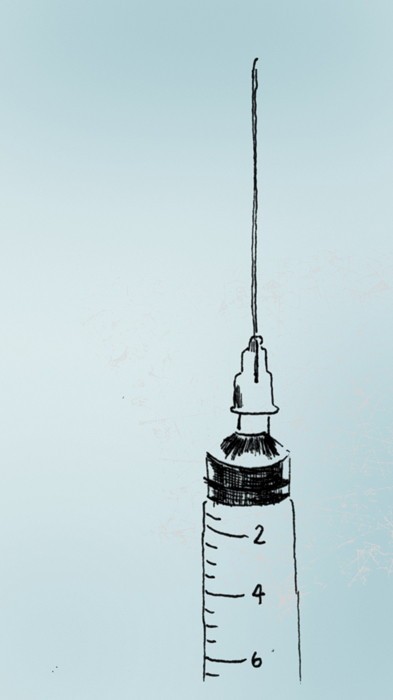Insite in Winnipeg: To be or not to be…
Mum’s the word on potential safe-injection site in Winnipeg
The only safe-injection site in Canada is still up and running but no one knows for how long. Meanwhile, the debate over whether Winnipeg would benefit from such a site continues.
Vancouver’s safe-injection site, Insite, provides a safe place to inject illicit drugs in the presence of a nurse. While the federal government’s appeal to shut down Insite was denied by the the B.C. Court of Appeal, they are taking their concerns to the Supreme Court.
At issue is whether provinces should have supreme jurisdiction over their health-care services even when they conflict with federal law – in this case, the Controlled Drugs and Substances Act.
“The government has decided to take the case to the Supreme Court of Canada,” said Marion Allaart, director of the Vancouver Area Network of Drug Users (VANDU). “They’re stalling … All the best evidence shows that supervised injection sites are wanted and needed.”
Although Winnipeg does not have an injection drug use problem on par with Vancouver’s downtown eastside, there is still a great need according to those who work with drug users in Winnipeg. The Province does not agree.
“[The province is] currently working with the WRHA and AFM by implementing needle exchange and methadone intervention programs. Maybe if there was littering in the streets like in Vancouver then we would look into it,” said a spokesperson for the Health Minister’s office, who refused to give his name.
Heidi Graham, director of media relations at the Winnipeg Regional Health Authority (WRHA), explained that the WRHA is currently utilizing a harm-reduction program called Street Connections which dispenses clean needles and pipes. They also collect the used needles and pipes for safe disposal.
“We give out about 30,000 needles a month, which is more than we take in,” she said. “In 2008 … around 22,000 Street Connections encounters were made with users.”
The Methadone Intervention and Needle Exchange program (MINE), run by the Addictions Foundation of Manitoba (AFM), is another initiative. The program provides addicts with methadone which helps prevent withdrawal symptoms and reduces cravings when trying to get off of opiates.
Although AFM is providing much-needed support for drug users, an AFM rep refused to comment for this article on whether Winnipeg should have a safe injection site.
Sandi Mowat, president of the Manitoba Nurses Union, explains that the union is in support of opening a safe-injection site in Winnipeg despite the lack of interest from the province. She says that overall it has been a success in Vancouver and that more sites should be opened around Canada.
“We know that they work … They reduce deaths from overdoses, they help stop the spread of disease and can actually prove to help manage costs in the health-care system,” said Mowat.
Dr. Lindy Lee, an authority on addiction medicine, agrees that a supervised injection site would be beneficial to the community but argues that funding is needed elsewhere first.
“[Funding] should first go toward creating a strong assessment clinic that follows up that support with more abstinence and methadone treatment programs,” she said. “Supervised injection sites are for people who aren’t ready for treatment or for whom treatment has failed.”
Concerns that safe-injection sites legitimize and even encourage drug use are common but unfounded, according to Brian Bechtel, executive director of the Main Street Project. The mission has a drug and alcohol detoxification unit and provides emergency shelter, transitional housing and counseling services for those in need.
“People are going to have a knee-jerk reaction to it, but the research proves them wrong,” he said. “Supervised injection sites are important because it’s difficult to get homeless people into a treatment program because of the instability in their lives. The reality is that they’re going to inject so they may as well do it in a safe place and off of the street.”
Published in Volume 64, Number 21 of The Uniter (March 4, 2010)







